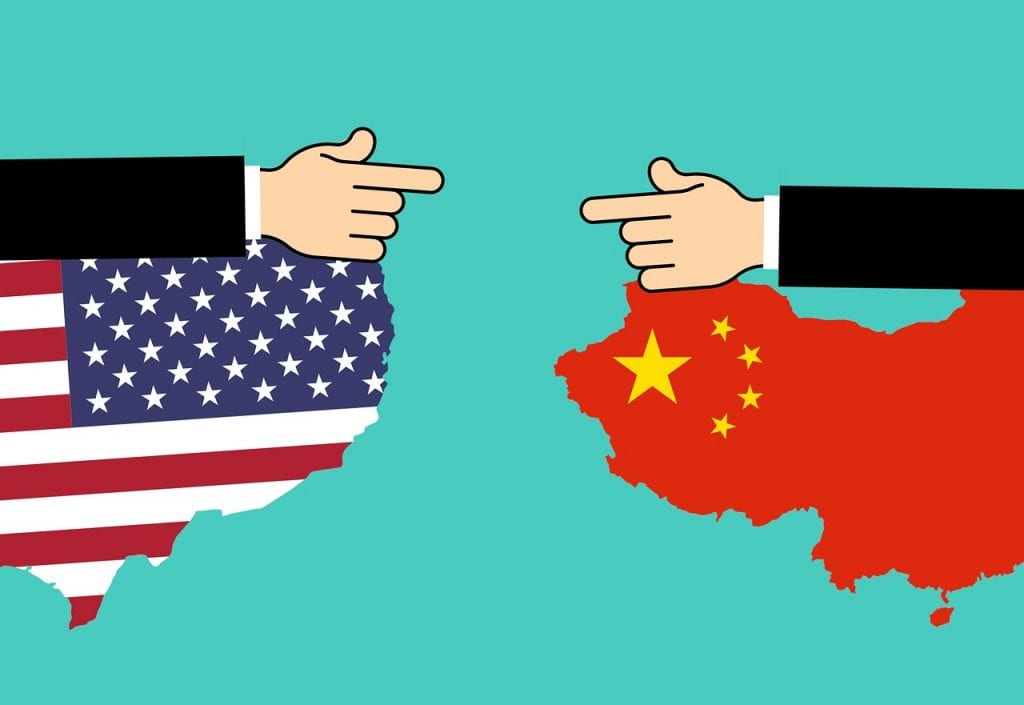The inauguration of Donald Trump as America’s 45th President ushered in a renewed wave of protectionism, with Trump desperate to put “America First” and breathe new life into its light and heavy industries. However, this doesn’t appear to have gone to plan thus far, with the US’ latest trade gap with the rest of the world said to have increased to a ten-year high of $621 billion in 2018. These figures have only served to further heighten President Trump’s feelings that America is being “ripped off” by other nations.
While admittedly President Trump’s decision to embark upon an all-out trade war with China does not appear to have had an adverse effect on the Dow Jones in recent months, there are murmurings that this could all be about to change. It is thought that Trump’s pledges to scale back on globalisation and trade could yet backfire on him. Continued tariffs on widely-used consumer goods and products will eventually have a negative effect on the confidence of buyers and investors alike. This scenario would result in no-one winning from the trade war. What Trump shouldn’t turn his back on, however, is small-time foreign investors. While multinational conglomerates might be deterred from investing in US markets in the midst of a trade war, small-time investors are sensing the emergence of some exciting opportunities.
US markets are still attractive to smaller foreign investors
There is a multitude of reasons why US markets are still a safe haven for small-time foreign investors. By and large, the dollar remains one of the most stable fiat currencies, its real-estate is still comparatively affordable and, most importantly, it’s a great opportunity for foreign investors to diversify their investment portfolios. Small-time foreign investors offer a mutual benefit to the US markets themselves, too. It’s also an opportunity for the American economy to diversify. Individual state governments don’t have to be beholden to the power of multinationals and, although smaller foreign investors won’t yield the kind of tax revenues claimed from larger corporations, it will be a more stable source of revenue for US industries.
As part of President Trump’s “America First” plan, reducing the monopolisation of large corporations in US industries is key – and small-time foreign investors can play a major role in this. No longer does America wish to put up with global corporations that seek to avoid or minimise their taxes in the US. Instead, it can seek bespoke partnerships with small-time and individual foreign investors. In doing so, it will water-down the monopolisation of shares and create a more balanced pool of investors that will benefit consumers and the industries themselves long-term.
Trump’s jealousy over China’s foreign direct investment

There is a widely held view that Trump’s trade war with China is centred largely around his concern of the vast amounts of foreign direct investment in the Far East. China’s entry into the World Trade Organization in 2001 was a watershed moment for the Chinese economy. It encouraged fresh FDI, with US businesses more readily prepared to outsource processes to the Far East. It’s just one of many events that have affected global trade and financial markets in recent decades, as the recent timeline, figured on this page, testifies.
In the world of FinTech, China has got off to an astounding head-start, too, with FinTech start-ups raising almost $40 billion in investment since 2014. In the first half of 2018 alone, some $17.3 billion was invested in China’s ten biggest FinTech initiatives. These seemingly small-time investments soon add up and there’s no doubt a hint of jealousy from the U.S. in this regard.
If, as expected, trade talks between the US and China don’t yield progress before the recent 90-day truce over tariff increase on Chinese imports expires, small-time foreign investors may just be a silver lining for the American economy. By minimising their dependence on formerly concentrated industries, they can diversify and improve the competitiveness of industries for businesses and consumers alike.



































